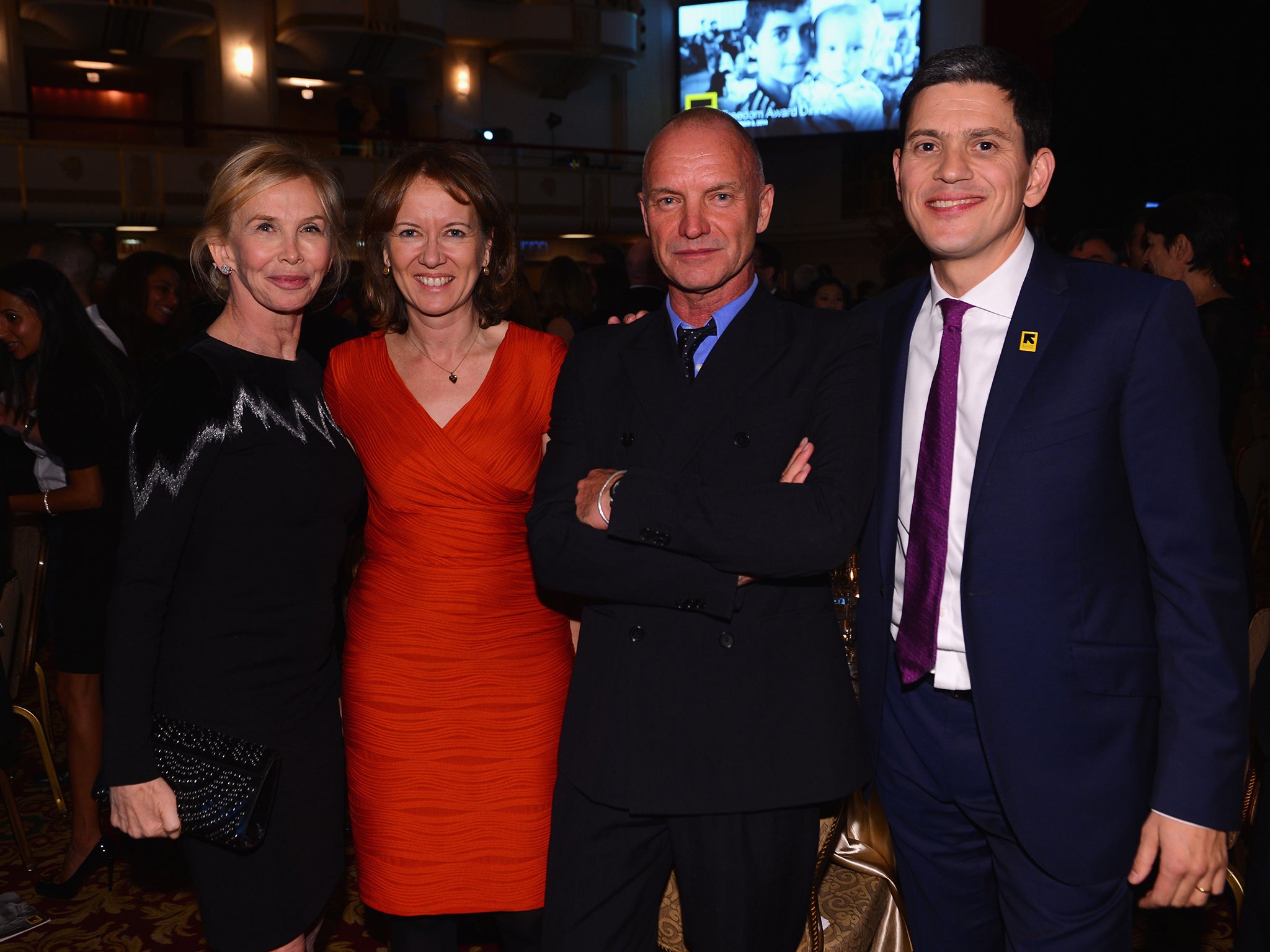David Miliband: An Englishman in New York, far from the maelstrom of British politics
His brother got the job he wanted – but David is having the last laugh

The days of running Britain’s foreign policy are long gone for David Miliband so it’s a bit unsettling when people in his adopted city of New York call him by his old title. If George W is still Mr President, he is still Mr Secretary.
Then again most people in New York, where he has lived for a little more than a year, don’t have a clue who he is. Or was. Every morning, he walks his children from the family’s rented apartment in Manhattan’s well-heeled Upper West Side to school and then joins the suited masses converging on midtown offices.
Mr Miliband now heads the International Rescue Committee, one of the world’s largest charities handling refugee crises. Shortly after his arrival, Madeleine Albright – still Madam Secretary (of State) – publicly joked that he himself was a refugee, escaping the British tabloids. Really, of course, he had fled the awkwardness of his brother, Ed, having beaten him to become leader of the Labour Party.
A lot of things are different now he has an ocean between him and the furnace of British politics. It affords little luxuries of all kinds, whether it’s his being able to walk the streets with his family unimpeded or the space it leaves him to concentrate on his new job.
It is not that he does not get media exposure. After spending several days at the end of October visiting both Sierra Leone and Liberia to discuss the Ebola response with each of their governments – the IRC has about 500 staff in the two countries – he found himself invited to assorted television sets in New York, including the studio of Stephen Colbert, the Comedy Central satirist.
He makes the appearances because he wants to talk about the IRC. He was hired, after all, in part to help raise its profile. And, maybe to his surprise, that is what he is able to do. There is no Ed-David obsession here. Neither the history of the race for the leadership nor the topic of brother Ed’s difficult sailing right now come up in interviews. Ebola is actually a bit more interesting. And even refugees.
He is wary therefore of the few British reporters prowling this city. The message he has given, ever since he welcomed them to a breakfast at the IRC headquarters just after his arrival, has been clear. He will not talk about Ed, now, in the future, or ever.
There is occasional idle chatter in New York that Mr Miliband’s medium-term goal is to build up his reputation at the IRC and then snag a golden job at the United Nations complex a few steps down the road. There would be the stability of remaining in New York for his wife, who is American, and his children, and the prospect of edging back into the diplomatic maelstrom.
In pictures: Ed Miliband trying to look normal
Show all 18For now he is by all accounts giving his all to the IRC. His main intent was to shake the place up, removing old wood here and overseas – the charity is now in 40 different countries – and also changing the way it does business. When every leader of each country’s field office was summoned to New York for a pep talk last week, he pressed home his gospel of change. He has grown convinced for example that sometimes it’s better to give cash to refugees than food and blankets.
That he should have landed at this particular charity would seem fitting. Both his parents were themselves refugees, his father fleeing to Britain from Belgium in 1940 and their mother from Poland seven years later.
Meanwhile the IRC’s plate has never been so full. This summer, its work in Gaza was turned upside down by Israel’s military campaign. Conflicts in South Sudan and eastern Ukraine have also demanded its attention. But above all it is the fighting in Syria that is giving the IRC its greatest challenge. Impressing on Americans the human costs of the conflict is one of Mr Miliband’s top concerns. He points to Jordan, a close ally of the US, which has a population of six million but has taken in one million refugees. That, he says, would be like all of Britain suddenly moving to the US.
Asked by Mr Colbert to sum up what his organisation does, he replied: “Wherever there is war, conflict and disaster we go there within 72 hours to help”. Because he is in New York he wasn’t forced to add the obvious: that war, conflict and disaster in the Labour Party don’t count.
Subscribe to Independent Premium to bookmark this article
Want to bookmark your favourite articles and stories to read or reference later? Start your Independent Premium subscription today.

Join our commenting forum
Join thought-provoking conversations, follow other Independent readers and see their replies